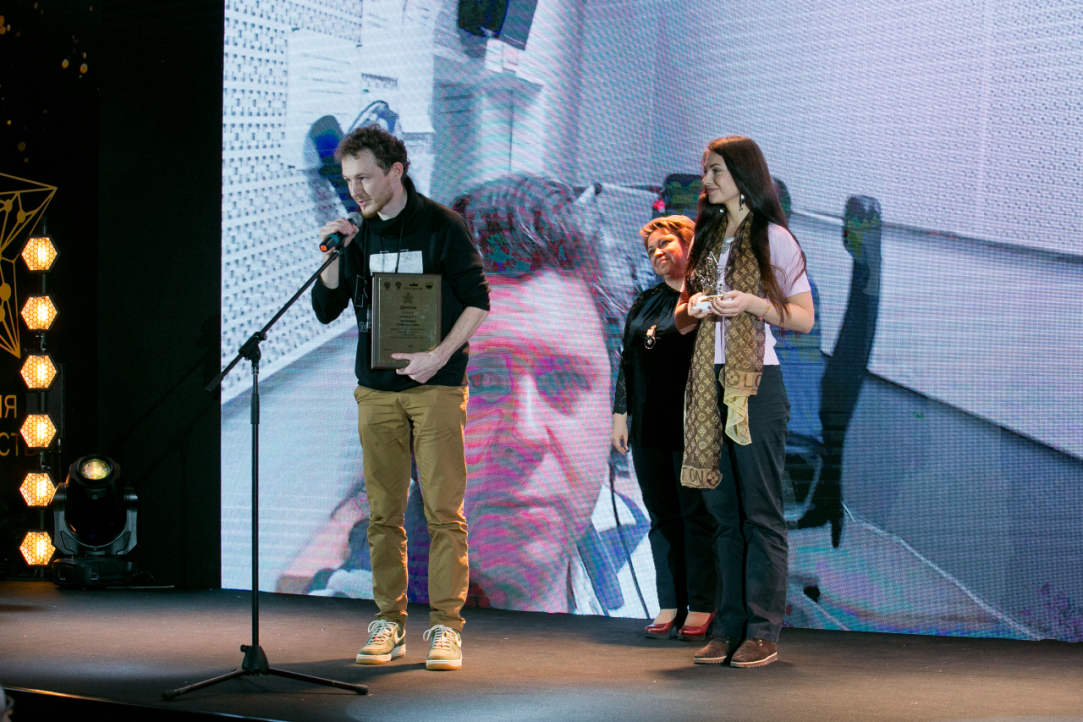
Abusive Supervisors: The First Study in Russia to Examine Abusive Supervision
Abusive supervisors who undermine and bully employees cost U.S. corporations an estimated $24 billion annually. Evgenia Balabanova, Maria Borovik and Veronika Deminskaya are the first researchers to study the problem in Russia.

HSE Student Awarded Russia’s Prize ‘For Loyalty to Science’ for Best Radio Programme
Vera Gribanova, a graduate student in the Master’s Programme 'Governance of Science, Technology and Innovation' runs a radio programme about great scientific achievements called ‘Scientific Light’ on the radio station ‘Moscow Talks’ (Govorit Moskva). This year her radio show has received the prestigious prize ‘For Loyalty to Science’, which is awarded annually by the Russian Ministry of Education and Science.
HSE Academic Is Reviving the Spirit of Socrates
HSE Assistant Professor of Philosophy, Aaron James Wendland, recently launched a popular philosophy column in a prominent British Magazine: The New Statesman. In this interview, we ask Aaron about his research interests, his experience at HSE, and the rationale behind his new column on popular philosophy.

Investment in LEGO Can Yield Returns of up to 600%
Economists of the School of Finance of the Higher School of Economics Victoria Dobrynskaya and Yulia Kishilova analysed secondary market prices of the world-famous toy construction sets released from 1987-2014.
HSE to Develop Agricultural Research
The Institute for Agrarian Studies was founded in October 2018 as a research department at HSE. It carries out research and expert analysis, as well as provides consulting services, in regards to agrarian economics and policy, and the development of agricultural markets and rural areas. It also aims to train highly qualified agriculture analysts. Evgenia Serova, HSE’s Director for Agricultural Policy and the head of the Institute describes below its research scope and development strategy.
Studying Zaryadye Park
The new Zaryadye Park in Moscow has inspired a series of studies and seminars involving urbanists, cultural scientists, designers, anthropologists and geographers. Researchers Michał Murawski, Margarita Chubukova, and Daria Volkova reviewed some of the ideas about the new park in HSE's Urban Studies and Practices Journal. We present a summary of their key findings.
Facts about Students in Science
Research plays a growing role in the educational process of the country’s leading universities. The HSE Statement of Values, for example, underscores its importance, stating: ‘Our lectures and textbooks reflect cutting-edge academic research; our academic articles, student papers, models and experiments seek to expand the horizons of contemporary academic inquiry.’ In honor of Students’ Day, we present a selection of facts about the connection between study and science in Russian universities, and specifically at HSE. (Sources: Monitoring of Education Markets and Organizations (MEMO), Monitoring Survey of Innovative Behavior of the Population (MSIBP), additional materials of the Institute for Statistical Studies and Economics of Knowledge (ISSEK), as well as results of a survey by the HSE Centre for Institutional Research (CIR).

Scientists Explain Formation of Lunar Dust Clouds
Physicists from the Higher School of Economics and Space Research Institute have identified a mechanism explaining the appearance of two dusty plasma clouds resulting from a meteoroid that impacted the surface of the Moon. The study was published in JETP Letters.

Biologists Discover Method for Early Detection of Parkinson’s
Scientists at the Higher School of Economics and the Russian Academy of Science’s Koltsov Institute of Developmental Biology have developed a new methodology for identifying biomarkers (indicators) of both early- and late-stage Parkinson’s disease. Their findings were published in the journal Molecular Neurobiology.

How Gender Inequality Is Reproduced on Social Media
Researchers from Higher School of Economics analyzed 62 million public posts on the most popular Russian social networking site VK and found that both men and women mention sons more often than daughters. They also found that posts featuring sons receive 1.5 times more likes. The results have been published in the Proceedings of the National Academy of Sciences of the United States of America.


Submissions are open until October 13